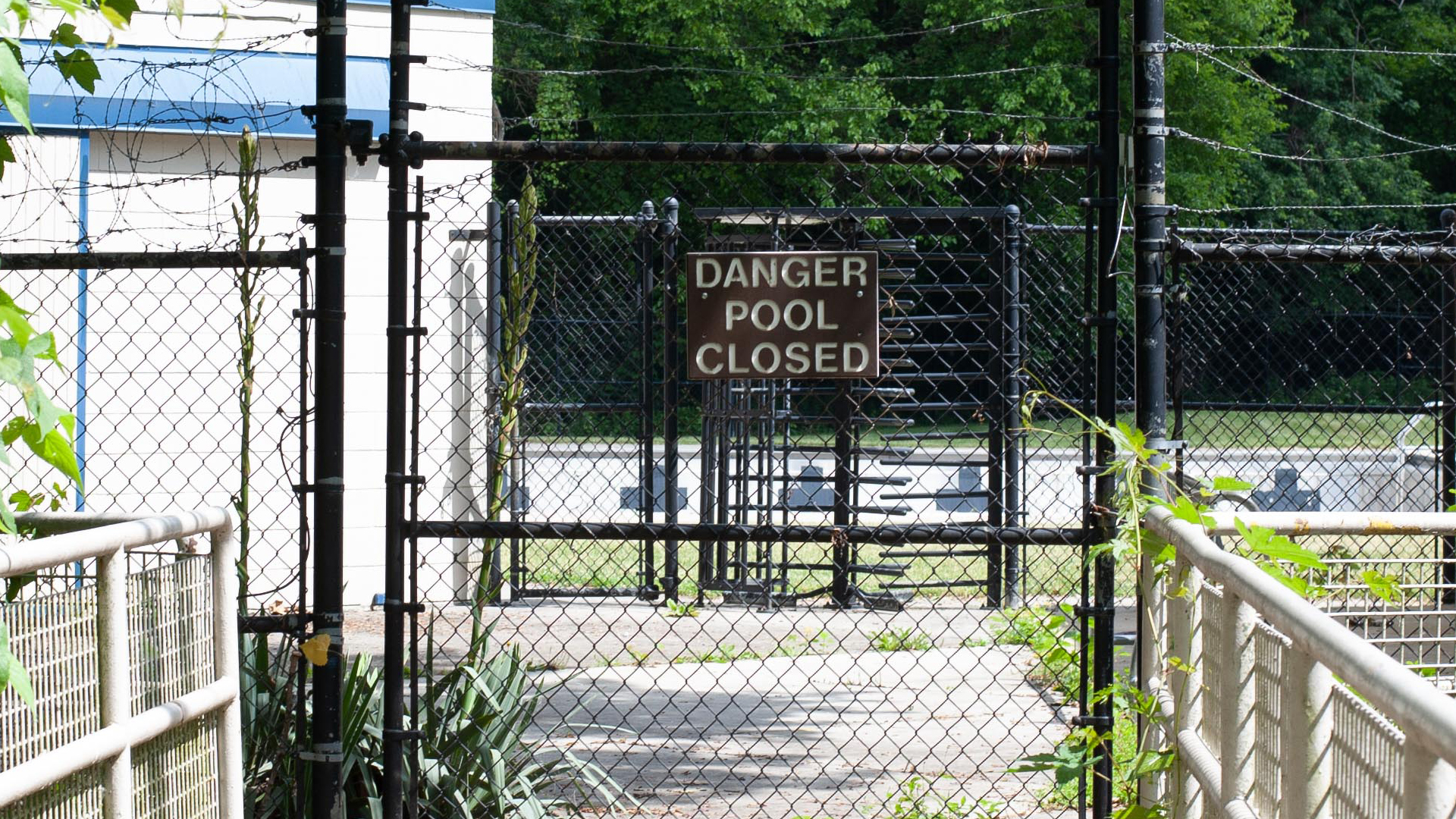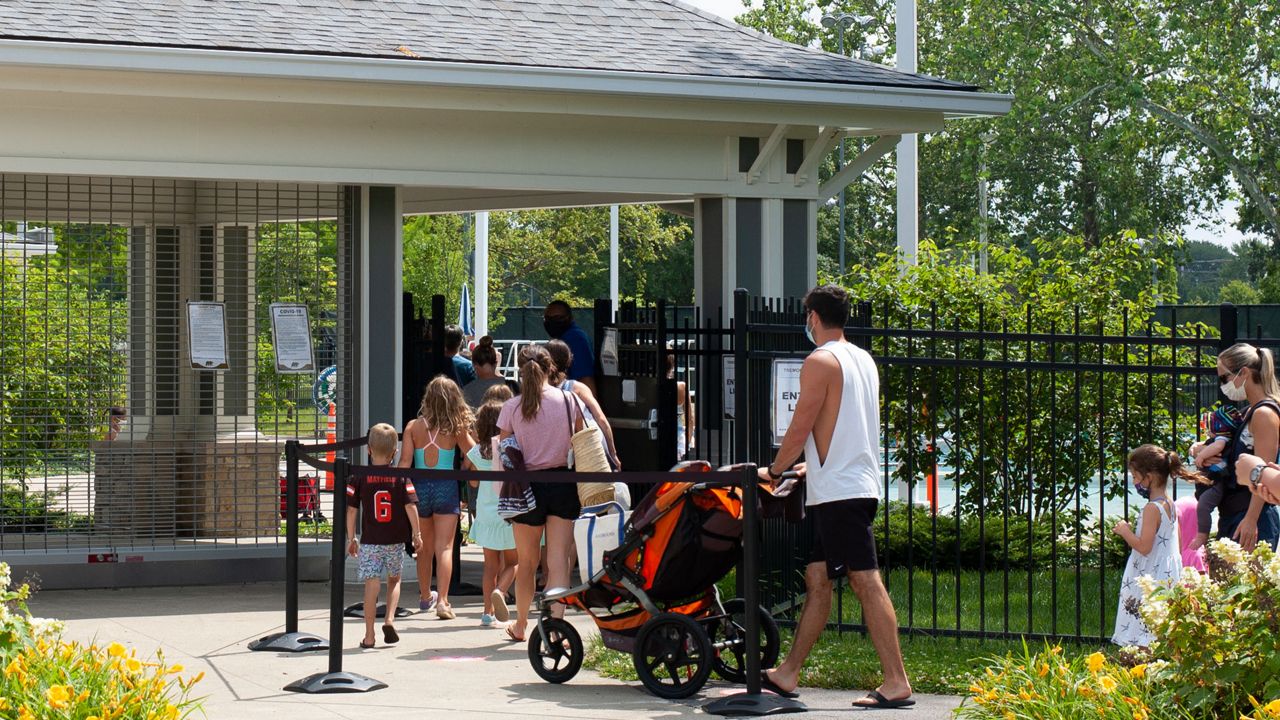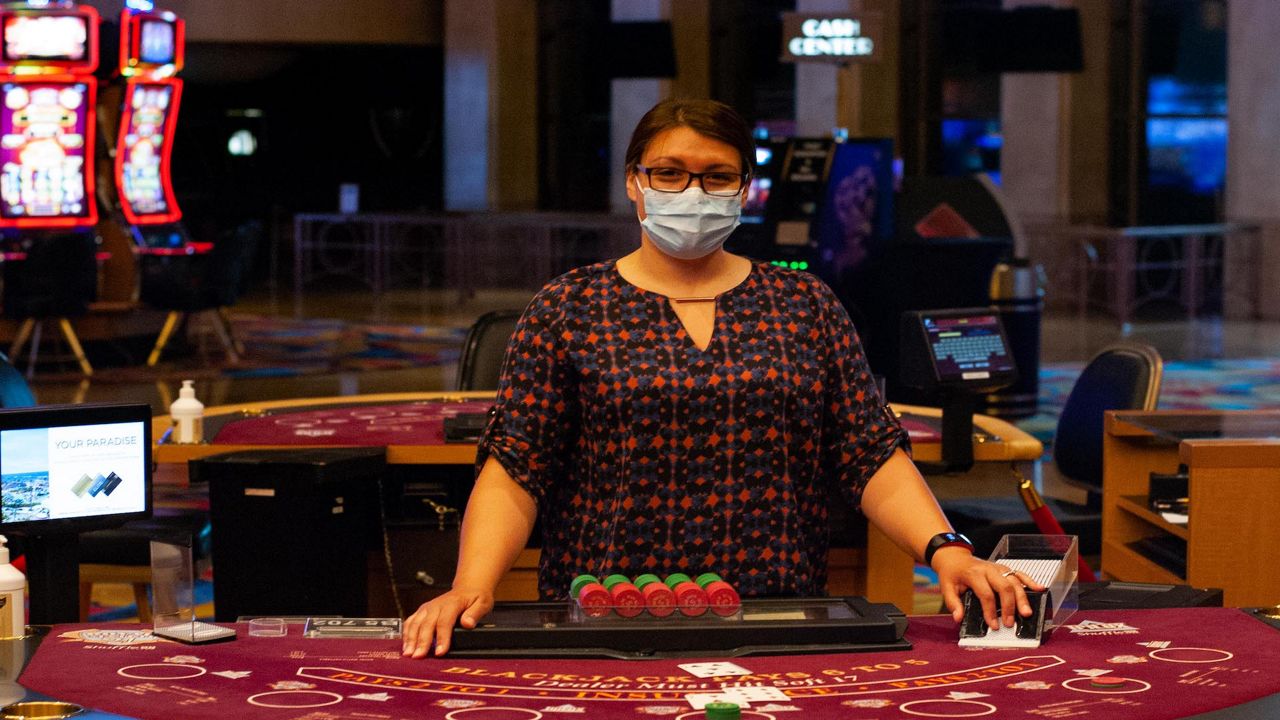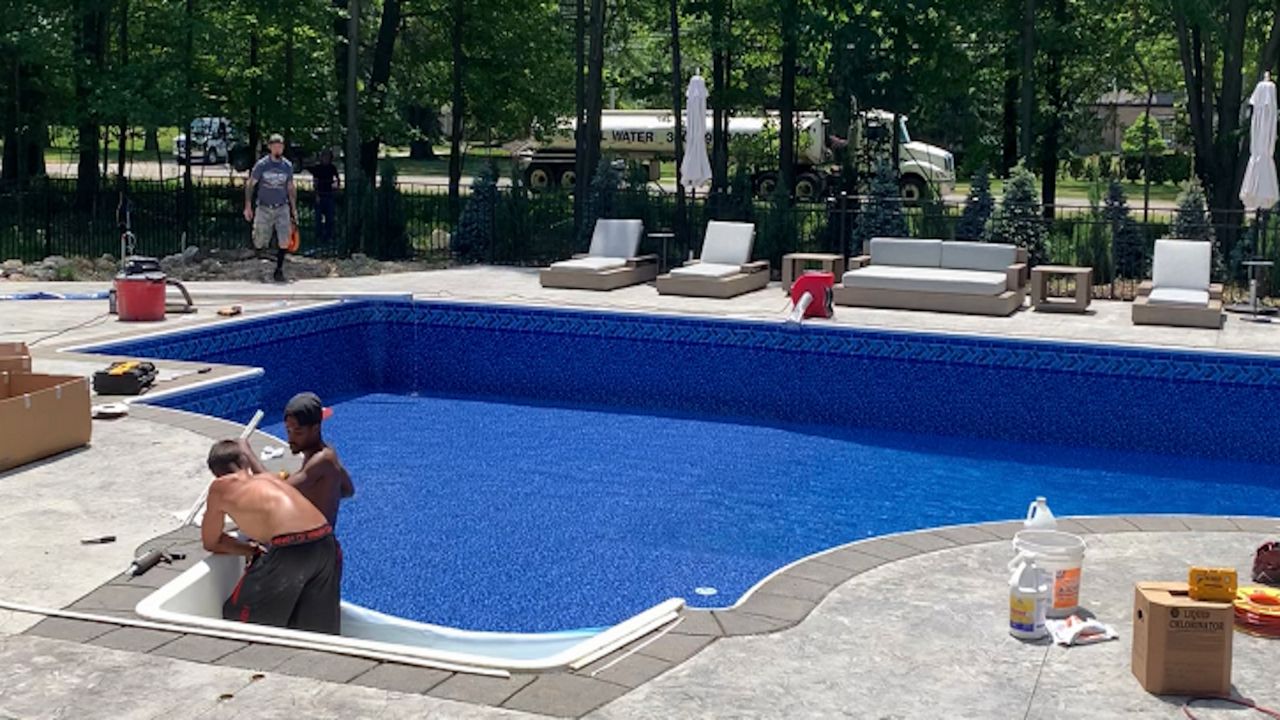COLUMBUS, Ohio- Ohio pools were given the green light to reopen on May 26, but most municipal pools in Franklin County have remained closed, heeding guidance from the county’s public health commissioner who is cautioning against all “unnecessary” recreational activities until COVID-19 case numbers subside.
What You Need To Know
- The Columbus Recreation and Parks department is waiting to see if case numbers will drop before it makes an opening decision
- Upper Arlington is among a handful of municipalities in the county that has opened pools
- The Central Ohio YMCA will open pools at eight of its branches on July 1
Commissioner Joe Mazzola said that with the severity of the outbreak of COVID-19 locally, the county has to approach reopening cautiously. For some sectors like pools, that means reopening more gradually than the rest of the state.
“I think people should be avoiding anything that’s unnecessary at this point,” Mazzola said. “And I know that’s kind of a difficult message for residents to hear, but we are still experiencing here in Franklin County community spread of COVID-19.”
In a letter issuing guidance to pools on May 26, Mazzola recognized pools’ legal right to open but said that he would prefer that pools not open at all for the summer season, and at the very least, postpone openings until July 1.
Three and half weeks later, Mazzola said the county’s case numbers remain bleak, and he is advising pools to remain closed beyond the July 1 date. Since his letter, Franklin County has added more than 2000 cases of COVID-19, he said.
“Franklin County continues to be the number one county in terms of the number of cases by far, and we want to limit opportunities for this virus to spread,” he said. “That was the reason for us to say to the pools that we would prefer that you not open at all.”

This guidance applies to municipal pools, but it also applies to private swim clubs, country clubs, condominium pools, and homeowners associations’ pools, which are all licensed by Franklin County Public Health and considered public pools. Many of those non-municipal pools went ahead with reopenings despite the local guidance.
Mazzola’s office has been cold-calling all 375 pools licensed by his office to determine their reopening plans, and they are even working with the pools that are defying his recommendation to ensure that they are in compliance with the state’s rules for pool reopenings. He gave some credit to the pools that have opened, acknowledging their efforts to reduce capacity and avoid congregation, but he said there is still potential for the virus to spread in a pool environment.
So far, his office has confirmed 160 pools have reopened or have plans to reopen, most of which are not municipal pools.
The list of municipalities that will keep their pools closed for the season includes Bexley, Canal Winchester, Gahanna, Grandview Heights, Grove City, Groveport, Hilliard, and Westerville.

The Columbus Recreation and Parks department’s eight pools are licensed by the city’s health department, which recommends that the city’s pools remain closed until case numbers drop.
“We have worked with Rec and Parks and encouraged them to wait to reopen to see how the case numbers look with the continued reopening of Ohio, and for them to use that information so they can determine when they should open,” said Kelli Newman, a spokesperson for Columbus Public Health.
Sophia Fifner, a spokesperson for Columbus Recreation and Parks, said it would be more challenging for public pools to comply with the state’s capacity restrictions than it is for private pools, which can sell a limited number of passes or use reservations to limit crowding. Public pools are meant to be open to everyone, she said.
While there is no timeline at the moment for a possible reopening decision for Columbus pools, Fifner said that as summer goes on and Labor Day gets nearer, the likelihood of reopening decreases.
“We really are looking at the numbers with regards to COVID cases. We’re looking at the science, and that changes day to day, week to week,” she said.
At pools that have reopened, residents have been eager to get back in the water.
Upper Arlington is one of the few municipalities in the county that has opened pools. At Tremont pool Friday morning, more than a dozen families arrived for the first reservation of the day at 11:30 a.m.
A couple of groups were turned away because they did not bring masks, which are required in some areas of the pool.
Jennifer Hickey said she felt safe with all the precautions the pool has taken, including floor markings to keep distance, deck monitors, and the removal of pool furniture. Her family brought their own chairs.
Her 5-year-old Owen is taking swim lessons. She said it was exciting for him to able to swim again and continue to get more comfortable swimming.
For residents of the parts of the county with closed pools, the most affordable way to get back in the water might be opening a membership with the Central Ohio YMCA. Other pools are restricting day passes or have reached capacity for new members. Pools like Upper Arlington are restricting non-residents from using the pools to keep reservations available for residents.
The YMCA will open pools at eight of its fifteen branches on July 1. Executive director of risk management Elissa James said the YMCA had to balance the local guidance with its view that swim education and aquatic exercise are vital offerings for its members.
“We know that for seniors and for a large population of our community, swimming is the exercise that they get to stay healthy,” she said.
The YMCA determined it could safely reopen its pools by significantly reducing capacity through its reservation system, she said. Branches will offer 45-minute lap swimming reservations for swimmers to reserve their own lane. Families will make reservations for “pods,” designated areas both in the pools and on the decks for groups of up to six to use.
James said the pods would help separate kids who may be tempted to play with others in the pool. That is their primary concern, she said. The YMCA is not worried about germ spread through the water because chlorine should kill the virus.
“It’s not really the water that we’ve worried about, but rather that people get too close. Kids can’t help that they want to play with the kid that’s in the next pod. That’s what swimming pools do is bring us together, so it’s just trying to figure out how we can safely have fun at the pool while staying apart,” she said.








